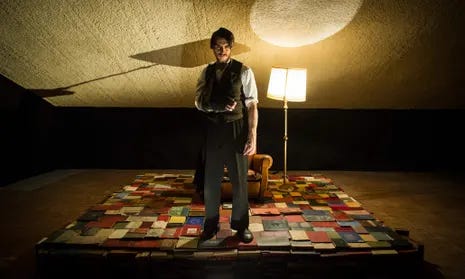New "Rights" of Passage
On Leaving, Liminality, and Incorporation—And the Nature of Modern Rites
Our world is filled with various rites of passage that speak to the universal human desire for transcendence—the desire to be someone who we are currently not, someone beyond our current state of life.
Some of these rites we choose to undertake voluntarily, like when a child leaves his parent’s home and cuts himself off from their money supply in order to craft a more independent life and, hopefully, to become an adult. (There are some cultural and economic reasons why many choose not to do this, like Italian mammoni, or “mommy’s boys.” Two out of three Italian male adults under the age of 35 still live with their parents. I love these guys, by the way, and hung out with them frequently during my three-year sojourn in Italy.)
And other times, these rites of passage are thrust upon us—when war comes to a country and forces normal men to become warriors, as happened in Ukraine, or when an unexpected pregnancy occurs and a couple must undertake the journey to parenthood before they feel they are ready.
In all cases, a rite of passage involves a process of becoming—a journey from one state to another. All of life is that process.
Yet the level of intentionality with which that process is undertaken—and the belief in the process of transformation itself—makes all the difference.
I have been wondering a lot lately about why some people seem to change, while others do not. This week’s essay is the start of a larger inquiry into that question.
The Basic Process
Before I get to the heart of the matter—and my thesis—a very brief bit of background.
The term “rite of passage” came into English from the enthnographer Arnold van Gennep’s seminal work Les rites de passage in 1909, which somehow didn’t make its way into English until 1960. That’s when the term “rite of passage” began to be popularized in the U.S.
(Very interesting: this interest in rites of passage coincided almost exactly with the publication of René Girard’s first book, Deceit, Desire, & the Novel—in which he writes about what he calls the “literary conversion”, or the way that a writer passes from Romantic Lies to Novelistic Truth.)






